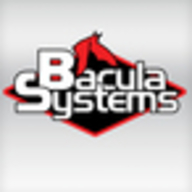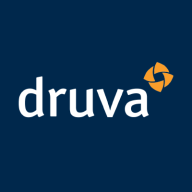

Bacula Enterprise and Druva Phoenix are competing products in the data protection and backup solutions market. Bacula Enterprise is recognized for cost-effectiveness and flexibility, while Druva Phoenix stands out for its advanced cloud-native features and comprehensive data management capabilities.
Features: Bacula Enterprise offers robust backup configuration options, high flexibility to fit varied environments, and support for diverse operating systems with a minimal footprint. Druva Phoenix features cloud-native capabilities, offers scalable and automated backup solutions, and facilitates seamless integration into cloud storage environments for comprehensive data management.
Room for Improvement: Bacula Enterprise could improve in easing its complex initial setup requirements, enhancing customer service to assist non-experts, and providing more streamlined solutions for diverse needs. Druva Phoenix has room for improvement in extending its ransomware protection capabilities beyond VMs, improving AI tools integration for analytics, and avoiding reliance on potentially superfluous features like marketing-driven chatbots.
Ease of Deployment and Customer Service: Bacula Enterprise's deployment typically demands more initial configuration, making it complex yet rewarding for customization enthusiasts, supported by reliable but specialized customer service. Druva Phoenix simplifies deployment with a straightforward cloud-based process, reducing setup time and offering strong customer support for seamless transitions.
Pricing and ROI: Bacula Enterprise incurs lower upfront costs with flexible pricing, delivering a solid ROI for businesses leveraging its customization capabilities. Druva Phoenix, despite higher initial costs, promises significant long-term ROI through minimized operational expenses and scalable cloud utilization.
| Product | Market Share (%) |
|---|---|
| Bacula Enterprise | 2.3% |
| Druva Phoenix | 0.8% |
| Other | 96.9% |


| Company Size | Count |
|---|---|
| Small Business | 5 |
| Midsize Enterprise | 1 |
| Large Enterprise | 4 |
| Company Size | Count |
|---|---|
| Small Business | 4 |
| Midsize Enterprise | 3 |
| Large Enterprise | 2 |
Bacula Enterprise is a highly scalable, especially robust and secure data backup and recovery software. Its unique low cost subscription model empowers data centers to truly escape data volume price traps. With a high degree of flexibility and customizability, Bacula offers native integration with a wide range of hypervisors, databases, file systems, cloud interfaces and containers. High numbers of enterprise organizations worldwide (incl. NASA, Bank of Austria, Swisscom or Sky PLC) have adopted Bacula Enterprise backup software in mission critical environments because of its advanced features and ability to handle high data volume at very low cost.
Druva Phoenix is a comprehensive cloud-based data protection and management solution that enables organizations to securely backup, recover, and manage their data across endpoints, physical servers, virtual machines, and cloud applications. With its scalable and flexible architecture, Druva Phoenix simplifies data protection and eliminates the need for traditional backup infrastructure.
By leveraging the power of the cloud, Druva Phoenix offers organizations a cost-effective and efficient way to protect their critical data. It provides automated backup and recovery capabilities, ensuring that data is always protected and easily recoverable in the event of a disaster or data loss. With its global deduplication and compression technology, Druva Phoenix minimizes storage requirements and reduces costs.
Druva Phoenix also offers advanced features such as point-in-time recovery, allowing organizations to restore data to a specific point in time, and granular file-level recovery, enabling users to recover individual files or folders. Its intuitive web-based console provides a centralized view of all protected data, making it easy to manage and monitor backups across the entire organization.
In addition to data protection, Druva Phoenix offers comprehensive data management capabilities. It enables organizations to gain insights into their data through advanced analytics and reporting, helping them make informed decisions and optimize their storage resources. Druva Phoenix also supports legal and compliance requirements by providing eDiscovery capabilities and ensuring data is retained and disposed of according to regulatory guidelines.
With its cloud-native architecture, Druva Phoenix offers organizations the flexibility to protect and manage their data across a wide range of environments, including on-premises, remote offices, and cloud applications such as Microsoft 365 and Google Workspace. It seamlessly integrates with popular cloud platforms like AWS and Azure, allowing organizations to leverage their existing cloud investments.
We monitor all Cloud Backup reviews to prevent fraudulent reviews and keep review quality high. We do not post reviews by company employees or direct competitors. We validate each review for authenticity via cross-reference with LinkedIn, and personal follow-up with the reviewer when necessary.